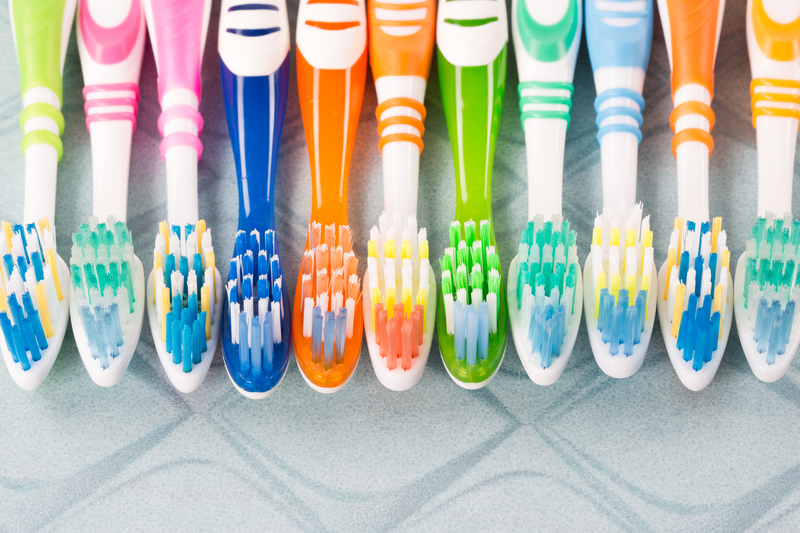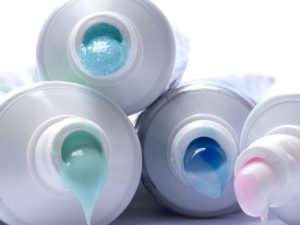Choosing Toothbrushes and Toothpastes
Dental Training that Benefits Your Child
April 27, 2018Dental X-Rays: Are They Safe?
May 14, 2018
Taking care of your child’s teeth can be tricky, especially if you are a first-time parent. What toothbrush do you use? Are all toothpastes the same? How do you care for their teeth? There are many oral health products out on the market today, and not all of them are the same. We can help you to know what types of toothbrushes and toothpastes you should get for your little one and how to take care of their teeth properly!
Having Great Oral Health
Not enough people brush and floss their teeth, which is one of the reasons why tooth decay is the most “prevalent chronic disease” according to the National Institutes of Health. Tooth decay—also known as “cavities”—could be stopped if people simply brushed, flossed, and visited the dentist more. The best part is that having great oral health only takes a few minutes of your time. Yet, you avoid major dental problems and diseases that will cost you money and much more time in the future. However, having great oral health also starts with choosing toothpastes and toothbrushes that work the best for your mouth.

Choosing Toothbrushes
When it comes to dental products, there are guides to help you choose the right ones. The American Dental Association is an organization that tests the quality and statements of a product and reports back to consumers if the product is good or not. If you see the ADA’s “Seal of Acceptance” on a product, then you can bet it has been authenticated as a product that can benefit your oral health. Many top brands of toothbrushes have this seal of acceptance, and it’s something you want to look for when choosing toothbrushes.
Some tips you should consider with your toothbrushes:
- Choose a soft-bristled brush. These help reduce tooth erosion and wear, as they are gentle on teeth, but hard enough to remove plaque. Hard-bristled brushes can hurt your tooth enamel.
- Get the right size and shape that fits your mouth. Toothbrushes come in different head sizes, lengths and more to fit your age and size. Child brushes will have smaller heads to fit in a child’s mouth comfortably. The same goes for infants and adults. There are infant gum brushes that are soft and safe for massaging and cleaning infant gums and for removing plaque from small baby teeth.
- Only choose products with the ADA seal of acceptance. You want a strong and sturdy brush with well-made bristles so they don’t fall apart in your mouth or after a few uses.
- Consider an electric toothbrush if you struggle with brushing your teeth well or for a long enough time (at least 2 minutes).
- Replace your toothbrush every 3 months or when the bristles start to fray.
No matter what brush you choose, make sure it feels good in your hand and in your mouth. If you are uncomfortable brushing with the brush you have, you likely just won’t do it.
Choosing the Right Toothpastes
Toothpaste is made up of chemicals and other liquids that you will be putting in your mouth. You always want to be careful what you put in your body. Don’t just buy any old toothpaste at the dollar store or from a source you don’t know. Only choose toothpastes that have ingredients listed on their package and only use toothpaste that does not have a broken seal. When choosing toothpastes you want to follow these recommendations:
- Choose toothpaste that has fluoride in it. Fluoride helps coat the teeth in a protective layer that helps prevent tooth decay.
- Choosing toothpastes with the ADA Seal of Acceptance will ensure the product is good and lives up to its claims.
- If you have a mouth condition (such as sensitive teeth or dry mouth), make sure you get a toothpaste that helps combat the oral problem. Sometimes you need a prescription if you have gum disease or dry mouth and you need a strong enough toothpaste to combat those problems.
- Ask the dentist what toothpastes are best for infants, for children and for adults. Toothpaste for children might not be strong enough to combat adult oral health issues and vice versa.
- Some toothpastes for adults contain chemicals that children’s toothpastes won’t because they can harm children or their teeth. An example is SLS, or sodium lauryl sulfate, which can be toxic in large amounts for children. Make sure you are choosing toothpastes that fit the age group using them.

Do You Want Whiter Teeth?
Many people are choosing toothpastes because of the promises they make of “whiter teeth”. Toothpastes often say they whiten, but this is only by removing the gunk that coats your teeth with the help of a toothbrush. The toothpaste may also contain abrasive small substances that help remove surface gunk. Some will also have chemicals in them to break down food and stains, but they lack the hydrogen peroxide needed for whitening.
You want to get a toothpaste that has hydrogen peroxide in it as an ingredient, as this is what will whiten your teeth. If you see a label that says “whiter teeth”, but it doesn’t have this ingredient, then skip it. Some of the best reported whitening toothpastes that actually whiten include:
- Opalescence Whitening
- Crest 3D White
- Tom’s of Maine Antiplaque and Whitening
- Sensodyne Extra Whitening
- Arm & Hammer Extreme Whitening
Choosing Toothpastes and Toothbrushes for Better Health
Find a brand of toothpaste that you like and that will give you the benefits you are looking for. Want whiter teeth? Choose something with peroxide in it. Want stronger teeth? Make sure it contains fluoride. Want to avoid cavities? Make sure you are brushing your teeth at least twice a day and flossing daily. Limit your sugar intake and see the dentist and orthodontist as often as recommended. If you want to know what products we recommend for our patients, call Hardy Pediatric Dentistry & Orthodontics today at (720) 887-6003!